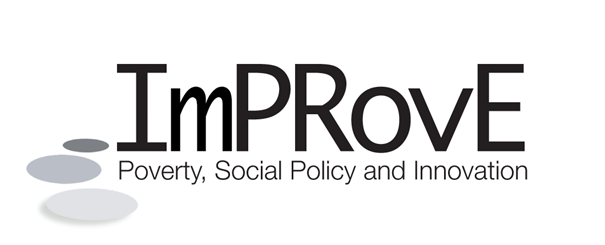This WP aims to assess local socially innovative policies and practices that address new and growing inequalities. In order to assess the extent to which socially innovative policies and actions help those (social groups of) European citizens that are identified as poor and socially excluded, special attention will be paid to the governance dimensions of successful socially innovative policies and actions.
More specifically we will address the governance challenges that are rooted in the complex interrelationships between the typical actors (community organisations, local states, NGOs and social movements, social economy firms, etc.), instruments and goals of local forms of social innovation and the redistributive policies of the national welfare state.
This WP will draw on three bodies of literature, namely the social innovation literature (Klein and Harrison, 2007; Moulaert, Martinelli and Swyngedouw, 2005), the emerging literature on rescaling social policy (Kazepov, 2010; Brenner, 2004; Cantillon, Popelier and Mussche, 2010) and macro- institutionalist literature on policy mix and instruments (Thelen, 2004; Beland, 2007).
We will identify and assess local socially innovative policies and actions, focussing on policies and actions that have experimented (successfully or not) with policy mixes that include socially innovative instruments (social learning, awareness raising and collective action/mobilisation) and with multi-level governance, i.e. learning, mobilising diverse actors and resources and raising awareness of local social needs across various spatial scales. The case studies will be sourced in close cooperation with the extensive stakeholder group of SOCIAL POLIS, Eurocities, EUKN and URBACT. They will be assessed using a comparative and transdisciplinary method.
The call for promising socially innovative initiatives is now online (see here)!
| Title | ||
|---|---|---|
|
Report of stakeholder workshops on the governance challenges for socially innovative policies and actions |
215 KB | Download |
|
Presentation: Supporting Roma children in education and social inclusion pathways. A case study in Lecce –Italy |
905 KB | Download |
|
MS17b Minutes Stakeholder Workshop on Governance Challlenges in Vienna |
128 KB | Download |
|
MS 18. Operationalisation of the Governance Challenges for Local initiatives of Social Innovation |
437 KB | Download |
|
List of governance challenges for successful local forms of social innovation (ImPRovE Milestone 42) |
96 KB | Download |
|
ImPRovE WP 16/11: Towards a more effective governance of socially innovative policies – First insights from the case studies |
674 KB | Download |
|
ImPRovE WP 15/17: Welfare systems, governance and social innovation: case study country profiles of Austria, Belgium and Italy |
1 MB | Download |
|
ImPRovE WP 13/12: Exploring the multi-level governance of welfare provision and social innovation |
1 MB | Download |
|
Case Study 31: Inspire! ‘NEET’ programme for North London |
1 MB | Download |
|
Case Study 30: CaixaProInfancia, Barcelona, Spain |
950 KB | Download |
|
Case Study 29: SIDH – Servei d’Intermediació en Deutes de l’Habitatge – Housing Debt Intermediation Service in Barcelona (Spain) |
713 KB | Download |
|
Case Study 28: UngBo 12. Young Housing 12. Malmö, Sweden |
730 KB | Download |
|
Case Study 27: Rӓtt Steg. The right step. Stockholm, Sweden |
609 KB | Download |
|
Case Study 26: Bostad Först i Stockholms Stad – Housing First Stockholm |
614 KB | Download |
|
Case Study 25: Språk-stödjande insatser: support for unemployed refugees and immigrants in Stockholm |
681 KB | Download |
|
Case Study 24: Vocational training for Roma adults to tackle social exclusion: Romane Buca in Sundbybergs Folkhögskola – Sweden |
652 KB | Download |
|
Case Study 23: Tradate Solidale: Paths of activation and the transformation of the local social welfare |
760 KB | Download |
|
Case Study 22: Tutti a Casa (All at Home) – A Housing First inspired experience in Bologna, Italy |
606 KB | Download |
|
Case Study 21: União Nacional por Moradia Popular and Social Innovation in Housing Policies for the Poor in Brazil |
611 KB | Download |
|
Case Study 20: Recycling, collective self-management and social inclusion: Movimento Nacional dos Catadores de Materiais Recicláveis São Paulo |
630 KB | Download |

